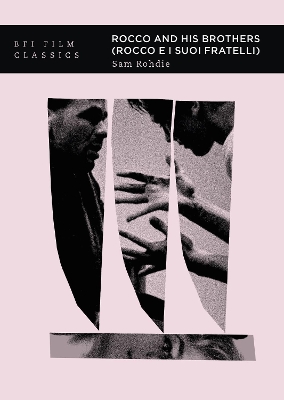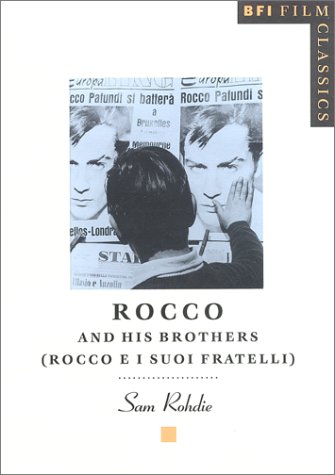BFI Film Classics
2 total works
Sam Rohdie's insightful and compelling analysis of Luchino Visconti's 1960 epic of modern urban life provides reveals the film as one of the greatest masterpieces of Italian cinema. Rocco tells the story of a family of peasants uprooted from their village in southern Italy, and forced to battle for existence in the industrial metropolis of Milan.
Though fascinated by the social reality of modern Italy, Visconti had by this time thrown off the influence of the neorealist movement. He had developed a style all his own, enriched by his experience of directing opera for the stage. As a result, the characters in Rocco are no longer held in check by the naturalistic conventions of neorealism. Instead, they erupt on the screen with all the emotional power of heightened melodrama.
The violent sexuality projected by stars Alain Delon, Annie Girardot, Claudia Cardinale and the rest of Visconti's impressive cast was too much for the Italian censors, who cut several scenes. Rohdie discusses the film in terms of its 'passionate splendid realism', arguing that these two apparently opposing moods are held in balance rather than contradiction in the film, part of 'the very condition of the film's power - and grace.'

